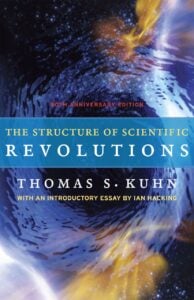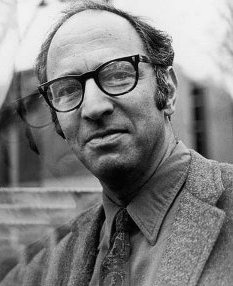Studying the history of science makes it easier to resist the tyranny of the pandemic medical experts.
A recurring theme in the annals of American conservatism is the dispute over historicism.
Historicism is the viewpoint that key features of the world around us can best be explained by studying their past: how they originated and how they developed over time. This may seem like a common-sense statement, yet it has prominent critics who espouse alternative theories for explaining the way things are, in the process reducing historical elements to fit an ideological model, such as Marxism, or analyzing the development of societies and cultures based on their rational, functional features—an approach used by sociologists.
One of the first and best-known critics of historicism within the ranks of the conservative movement was the late American philosopher Allan Bloom. In his 1987 best-seller, The Closing of the American Mind, Bloom claimed historicism led to “cultural relativism,” or the belief that notions like the equality of all human beings were mere “prejudices” rooted in the past. Bloom and likeminded conservatives preferred to believe that some values, like equality, are not products of specific cultures but transcend all societies. One can see how this viewpoint underpins universalist ideologies that seek to “free” backward societies that haven’t yet embraced their preferred universal ideals: for example, the promotion of international socialism by communists or the export of liberal democracy (via regime change if necessary) by neoconservatives.
Historicism, on the other hand, according to Bloom and his followers, undermines all of these universal “claims to truth” and thus opens the doors to political tyranny, whether in the form of Nazi Brownshirts or 1960s campus radicals, who seemingly glory in violence for its own sake.
More recently, Chronicles Editor Paul Gottfried and Claremont Institute Senior Fellow Michael Anton have debated the value of historicism in Claremont’s online magazine, American Greatness. As Gottfried explains, some on the political right want to define historicism as a “heresy.”
I tend to agree with Gottfried that historicism, far from being a “heresy,” is actually compatible with a conservative outlook. In fact, a historicist reading of the past can empower conservatives in this day and age, when the managerial states of the West seek to curtail human freedoms in the name of “science,” as they infamously did during the recent coronavirus pandemic.

With this in mind, it is fitting that last year marked the 100th anniversary of the historian Thomas S. Kuhn’s birthday and the 60th anniversary of the publication of his influential book on the history of science, The Structure of Scientific Revolutions. Kuhn’s book has been translated into 16 different languages, has been published in four editions, and has sold more than 1 million copies.
Kuhn is known today largely because of the popularization of his phrase “paradigm shift,” by which he meant the change from one intellectual framework to another. The shift during the Renaissance from an earth-centered Ptolemaic cosmology to a sun-centered Copernican one, and the all-encompassing change in perspective this created not only in the sciences but in all fields of human knowledge, is a key example of Kuhn’s concept.
Thanks to Kuhn, using “paradigm” in a sentence has become fashionable among writers in fields as disparate as politics, music, and sports. “Paradigm” was The New York Times’ “Word of the Day” for March 26, 2021, and the newspaper noted that its writers had used the term in 167 Times articles in the previous year.
But the main reason for conservatives to consult Kuhn’s book is its subversive, historicist reading of the history of science. Kuhn made a distinction between how science ought to develop and how it has actually evolved over time. He argued that the history of science did not unfold incrementally or progressively towards a greater and greater understanding of nature’s laws. Instead, he asserted that science developed discontinuously. It underwent revolutions, when one paradigm was replaced by another. Just as Copernican astronomy supplanted the theories of Ptolemy, Newtonian mechanics replaced Aristotelian physics, and so on.
Kuhn’s additional key insight was that each revolution in science was incommensurable with the paradigm or “disciplinary matrix” that preceded it. Scientists working in one paradigm, in other words, found it impossible to communicate with scientists working in another. As science lurched from one revolution to another, the accepted wisdom of one generation was the discredited belief system of a later group of scientists.
Kuhn’s book made a big splash because when it appeared in 1962, the institutions of scientific research enjoyed more cultural prestige than ever before. DuPont Chemical’s advertising slogan “Better Living through Chemistry” neatly captured the scientific ethos of America’s post-war period.
The implicit critique in Kuhn’s book of the fallibility of science became more powerful in the following years. Events such as the publication of Rachel Carson’s seminal environmental book, Silent Spring (1962), which attacked the chemical industry, Ralph Nader’s assault on the automobile industry in Unsafe at Any Speed (1965), and the 1964 U.S. surgeon-general’s report on the danger of smoking tobacco, undermined faith in the benevolence of America’s industries and the industry-funded science that supported them. Since the 1960s, trust in American public institutions, ranging from big business and universities to the three branches of U.S. government, has trended downward in opinion polls.
It is all the more surprising, then, that once the pandemic started, Kuhn’s critique of scientific knowledge fell into a memory hole. All of a sudden, public health researchers and officials were viewed as the custodians of expert knowledge that was beyond question. When someone like White House Chief Medical Advisor Anthony Fauci or Director of the Centers for Disease Control Rochelle Walensky invoked the authority of “science” and advised governments to shut down society, the majority of citizens acted as if they were to be obeyed without question. More sinister was that governments, schools, hospitals, and industry openly and brazenly tried to censor or cancel those who questioned the scientific advice of the self-proclaimed experts.
To put it another way, during the pandemic of 2020-2022, we heard virtually nothing about Thomas Kuhn, even in intellectual journals. I suspect that wasn’t coincidental. From the pandemic’s earliest days through to the end of 2021, celebrities, elected officials, journalists, and public health researchers browbeat the American public to “follow the science” even as their policy recommendations twisted and turned in contradictory directions, such as the conflicting and changing “expert” views about the efficacy of masks or the use of hydroxychloroquine.
By early 2022, the spell started to wear off, and Forbes magazine observed that “follow the science” was a mere slogan, one often deployed by the left as a way of silencing nettlesome sceptics on the right. Even The Washington Post agreed, stating that by the third year of the pandemic “the simple slogan” had become “a political weapon.”
By then, it was too late. Hundreds of thousands of Americans had died from COVID, a result that may have been mitigated by the use of alternative treatments like ivermectin, which had been mocked by health officials in the media as a “horse dewormer.” Masses of people who had resisted—or even questioned—the efficacy of masks, vaccines, lockdowns, school closings, and social distancing had been censored or discredited to the point of losing jobs. Careers were destroyed.
Kuhn’s historicist critique of science ought to have made the talking heads of the mainstream media, as well as Democratic political operatives, more humble about invoking the authority of science. If Kuhn taught anything, it’s that when we talk about “science,” we are actually talking about the fallible beliefs of scientists, flesh-and-blood men and women who hold the biases typical of a professional community embedded in a particular moment in history.
Kuhn himself admitted that his book didn’t adequately discuss the sociological question of what constitutes a scientific community, but it is safe to say that the 21st– century scientific establishment, through its system of grants, fellowships, awards, and appointments, is able to enforce consensus more thoroughly than has any scientific community in the past.

Thomas S. Kuhn
(Bill Pierce / Time Life Pictures)
All in all, Kuhn’s work in the history of science is an example of historicism at its best. He had an unwavering, passionate interest in applied science down through the ages and engaged his students at Princeton in close, detailed examinations of what scientists had accomplished at specific times in the past.
Kuhn, in the words of his former student Jed Buchwald, did not think that “there was much meaning to asserting that science evolves more closely to Truth, for he did not consider such a thing to be accessible.” Yet Kuhn still believed in a kind of “progress,” which held that over the course of time, successfully solved problems did multiply in number. For instance, while entirely different paradigms divide medieval Aristotelian physicists from scientists at the Massachusetts Institute of Technology today, the latter still benefit from the accumulated trial-and-error of their forebears.
Thus, it is silly for conservatives to be queasy about historicism because of the prejudices and ideological concerns of philosophers like Bloom. In a day and age when most of America’s institutions—from schools to the media—are largely run by bureaucratic “experts” who see the exercise of state power as crucial to the defence of “democracy,” we need Kuhn’s historical approach to demystify hegemonic claims to scientific expertise.
For conservatives living under a Joe Biden presidency, historicism is an invaluable tool for interrogating what the state and its institutions tell us to believe.

Leave a Reply